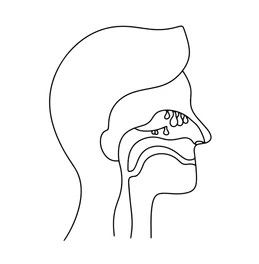What Causes It?
Chronic sinus infections
Allergic rhinitis (hay fever)
Asthma-related airway inflammation
Aspirin sensitivity (Aspirin-exacerbated respiratory disease)
Cystic fibrosis
Chronic rhinosinusitis with nasal inflammation
Immune system disorders causing persistent inflammation
Fungal sinus infections
Signs & Symptoms
Persistent nasal congestion or blockage
Runny nose (rhinorrhea)
Postnasal drip (mucus flowing down the throat)
Loss or reduced sense of smell (anosmia)
Diminished sense of taste
Facial pain or pressure
Frequent sinus infections
Snoring or sleep disturbances due to nasal blockage
